PURE-PAK® is the natural solution
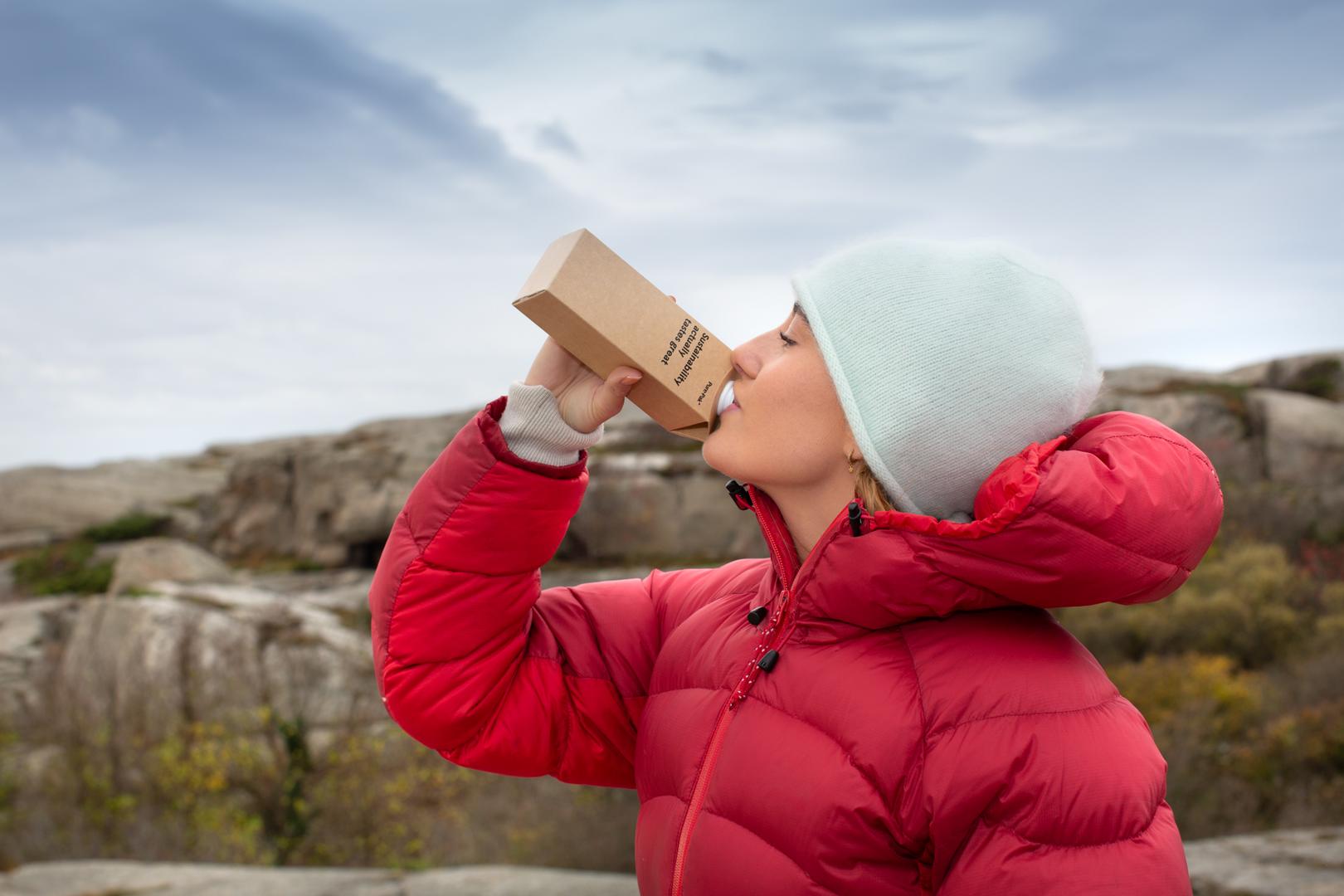
Plastic waste remains the number 1 challenge in packaging. Plastic has become the cause of the evil in the minds of consumers. The problem is very visible, and everyone knows about the plastic islands in the oceans and the environmental damage caused. Already 30% of all households are reluctant to use plastic packaging when shopping and alternatives are available. This sentiment is only growing. Consumers attach even greater importance to avoiding plastic today compared to 2019, even though the topic of hygiene was placed very much in the foreground at the Point-of-Sale during the COVID-19 pandemic.
Moreover, environmental concerns have become only broader and stronger in the course of 2020. Gfk asked its consumer panels amid the COVID-19 pandemic what keeps them awake at night and the primary answer is Climate Change.
Most FMCG companies and retailers has a strategy on sustainable packaging. It is however no secret that the sustainability credentials of packaging solutions vary considerably. Choosing the right pack has several potential benefits: the first in reducing the overall carbon footprint of a finished product, and the second in ensuring the product is kept safe and fresh, helping to minimize waste.
While weighing up the options on an offer can be a daunting process, it is worth noting that beverage cartons have strong environmental credentials when compared with alternatives such as plastic bottles. A Lifecycle Assessment study from 2018 showed the carbon footprint of a standard carton to be up to 80% lower than that of a disposable PET bottle*. Recycled content does not significantly change that picture. Even with optimized logistics and adding 75% recycled content to the PET bottle, the difference remains approximately 50%. In Europe, an average of 8% recycled PET is currently used in bottles.
Low carbon, circular packaging offered by Pure-Pak® cartons and fibre-based packaging in general is the natural solution, which has been finding traction over 2020 also in non-traditional carton segments like water.
*: Life Cycle Assessment (LCA) performed by the Institute for Energy and Environmental Research (IFEU) in 2018. The study compared 1 litre beverage cartons for milk and juice with commercially available disposable and reusable systems in the German market including glass and PET packaging. The entire life cycle of all market-relevant packaging was considered.
Cool idea for Danish water
Entrepreneurial Danish business Postevand was founded in 2014 with the mission to be the best and most sustainable alternative to spring water in plastic bottles. Postevand, which means ‘tap water,’ packages exactly that – Danish tap water in Pure-Pak® cartons.
“We are starting to see the consequences of our plastics culture, and we expect that in 2050 there will be more plastic in the sea than fish,” adds Jesper. “No matter how plastic packaging is presented – as recycled, reusable, etc. – it is still a fact that plastic comes from fossil fuels. So, for us, cartons that are FSC-certified and made from renewable materials was an obvious choice.”
In 2020, Postevand introduced its 1-liter Pure-Pak® cartons as a sustainable and reusable cool pack for the growing home delivery market. The pack is filled with 800ml of water, undergoes a slow deep-freezing process, and is then used to keep food chilled and fresh. Consumers can reuse them as cool packs or defrost the water.
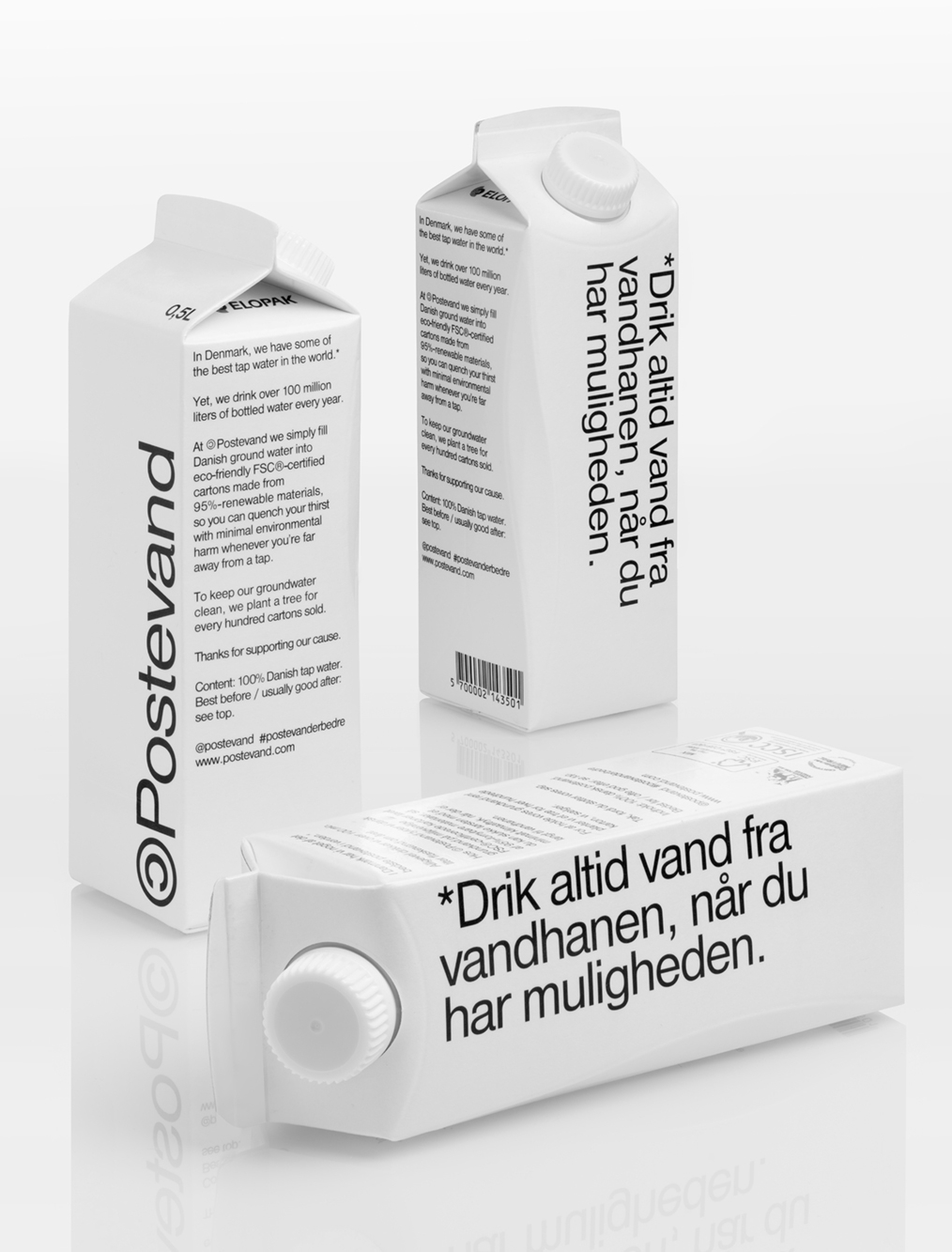
Packaging is also a straightforward and strong communication vehicle. And innovation is continually driving improvements in the industry, hence opening up exciting new options in the field of low carbon and carbon neutral packaging. One of the latest innovations to gain traction is Elopak’s Natural Brown Board carton, which is renewable, recyclable where collection and recycling schemes exist, and has a lower carbon footprint than conventional cartons, owing to reduced wood consumption and the elimination of the bleaching process. These are a rustic take on the company’s iconic Pure-Pak® cartons, made with one less layer to allow the natural colour of the wood fibres to shine through.
Natural Brown Board Cartons Set New Industry Standard
In 2020, Elopak recorded a significant increase in the sale of Natural Brown Board cartons compared to previous years. Approximately 20 percent of Pure-Pak® milk cartons in Western Europe are produced with Natural Brown Board. This figure far exceeded the initial projections and set a new standard for ecologic milk and plant-based drinks.
In 2017, in partnership with supplier Stora Enso, Elopak was the first packaging company to provide gable top cartons made with Natural Brown Board. These Pure-Pak® cartons are renewable, recyclable where collection and recycling schemes are in place, and have a lower carbon footprint than other cartons, owing to reduced wood consumption and the elimination of the bleaching process. Their rustic, natural look effectively communicates this commitment to sustainability and instantly stands out on the shelves.
Many of our customers offer organic, green, or otherwise sustainable products. Therefore they want a packaging solution that reflects this ethos and instantly signals their commitment to the environment. The unbleached, natural look of the Pure-Pak® with Natural Brown Board effectively communicates inherent sustainability of these products.
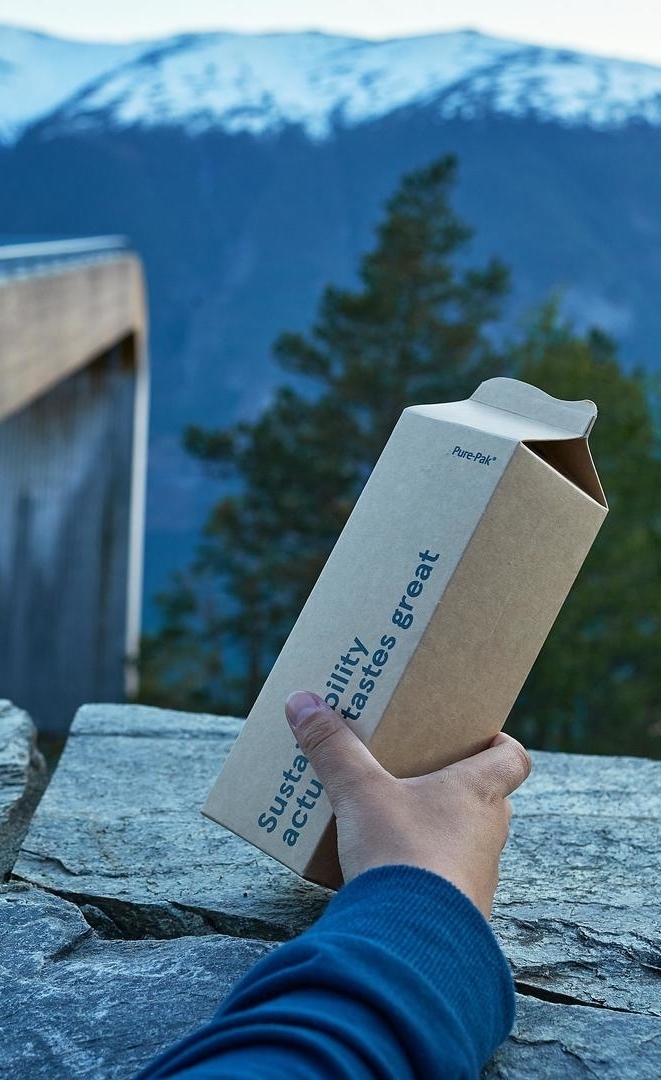
Recent studies show consumers addressing spontaneously the highest preference in terms of environmental credentials, to Pure-Pak® cartons in Natural Brown Board, well above glass and far above typical brick-shaped cartons and definitely PET bottles. As such, launched in 2017, today approximately 20 per cent of the Pure-Pak® milk cartons sold in Western Europe are produced with Natural Brown Board. Towards the end of 2020, the volume of these cartons surpassed one billion units. Their lower CO2 footprint means an estimated 3,000 tons of greenhouse gas emissions have been avoided as a result.
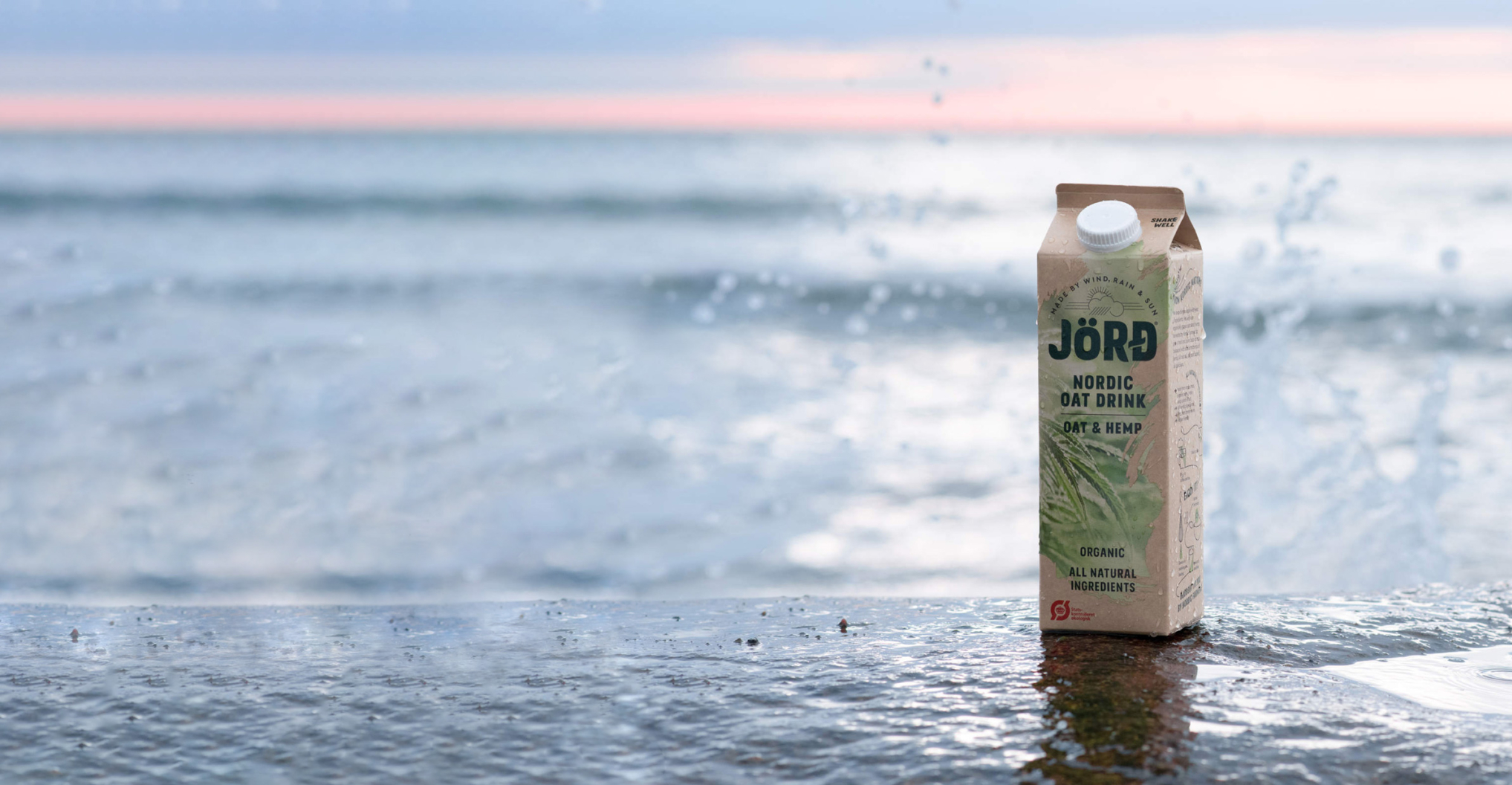
Case
Arla splashes down in plant-based market with new brand and new carton
The plant-based market exploded in 2020 with many customers expanding or entering this sector. Arla Foods launched its new brand JÖRĐ, featuring three dairy alternative drinks in cartons.
For Arla, the new brand expands products for all consumers so dairy and non-dairy products can be enjoyed side by side. The first three products under the JÖRĐ brand were introduced across Denmark and UK featuring a range of dairy-free oat-based drinks: JÖRĐ Oat, JÖRĐ Barley and JÖRĐ Hemp, presented in 1 liter Pure-Pak® Sense cartons with Natural Brown Board. All the products are organic and contain only natural and Nordic ingredients.
“It was natural for Arla to enter this market, which is adjacent to the milk category. New products should be fascinating and interesting, and we know from research that taste and novelty are driving this category,” said Arla’s Senior Innovation Manager, Vadim Smolenkin.
Extensive consumer research and focus groups enabled Arla to identify the best recipes for JÖRĐ and the best package. The carton communicates the Nordic and natural values of JÖRĐ with its look and feel. It generates a warm, confident feeling with the consumer due to its responsibly sourced materials, sustainable design, and recyclability.”
Read moreMany FMCG brands are going even further in their quest to reduce their carbon footprints by removing the caps again. A clear and visible answer to the engaged consumer of today by explicitly replacing plastics.
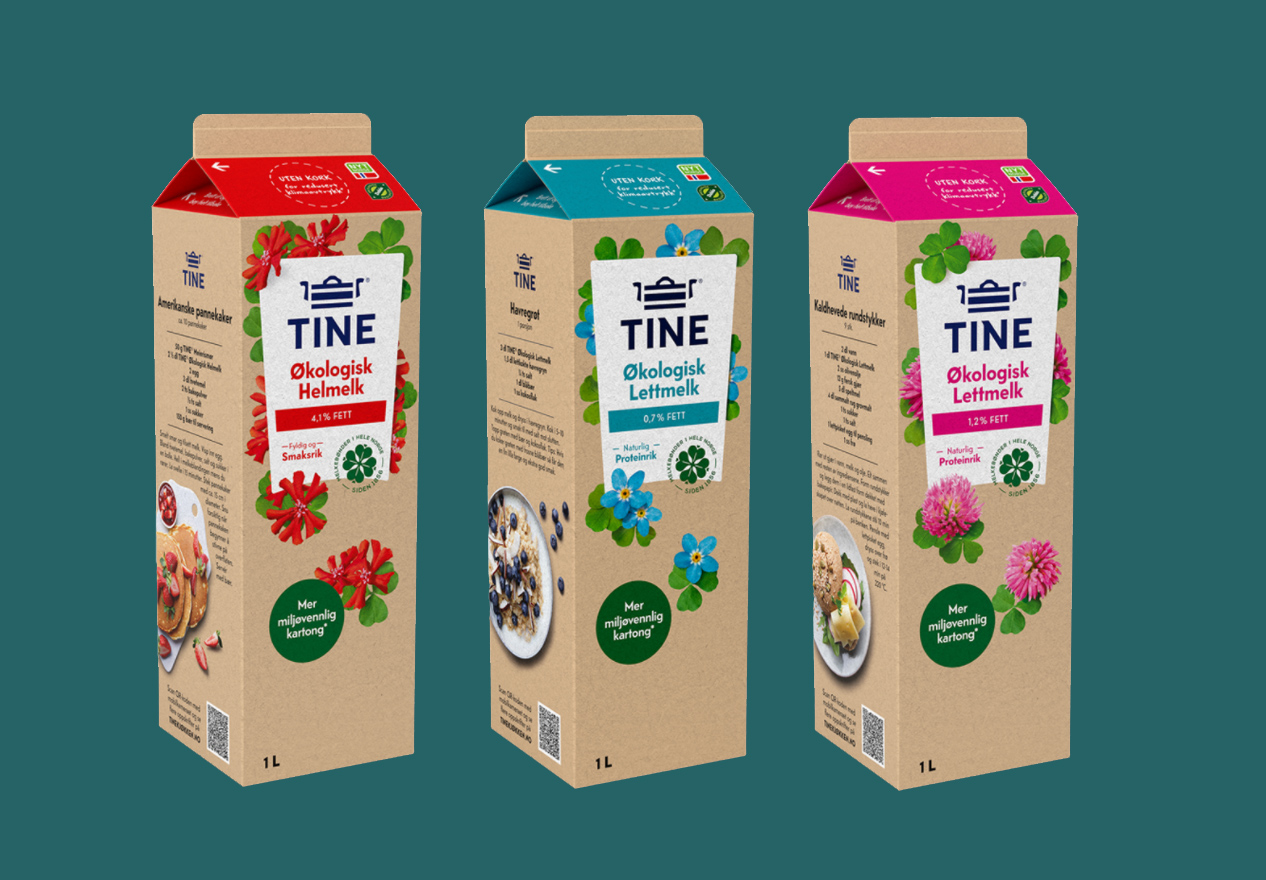
TINE gets nostalgic with classic milk carton
In 2020, TINE was the first dairy in Norway to remove plastic caps from milk cartons. TINE organic milk was launched in 1 liter Pure-Pak® cartons with Natural Brown Board and a new and improved version of the classic carton opening. By removing the cap on TINE’s organic milk, the dairy reduces its plastic consumption by at least 5 tonnes every year.
TINE, was one of the first to use 100% forest-based renewable cartons and is completely dedicated to taking care of the environment. The new carton is a further step forward for our long-standing customer’s continuous efforts to reduce its climate footprint.
The opening feature, which many will know as “fold-out and bend back,” creates a modern, nostalgic version of the original milk carton. For TINE, the development provides a more environmentally friendly carton with an even lower carbon footprint than conventional cartons.
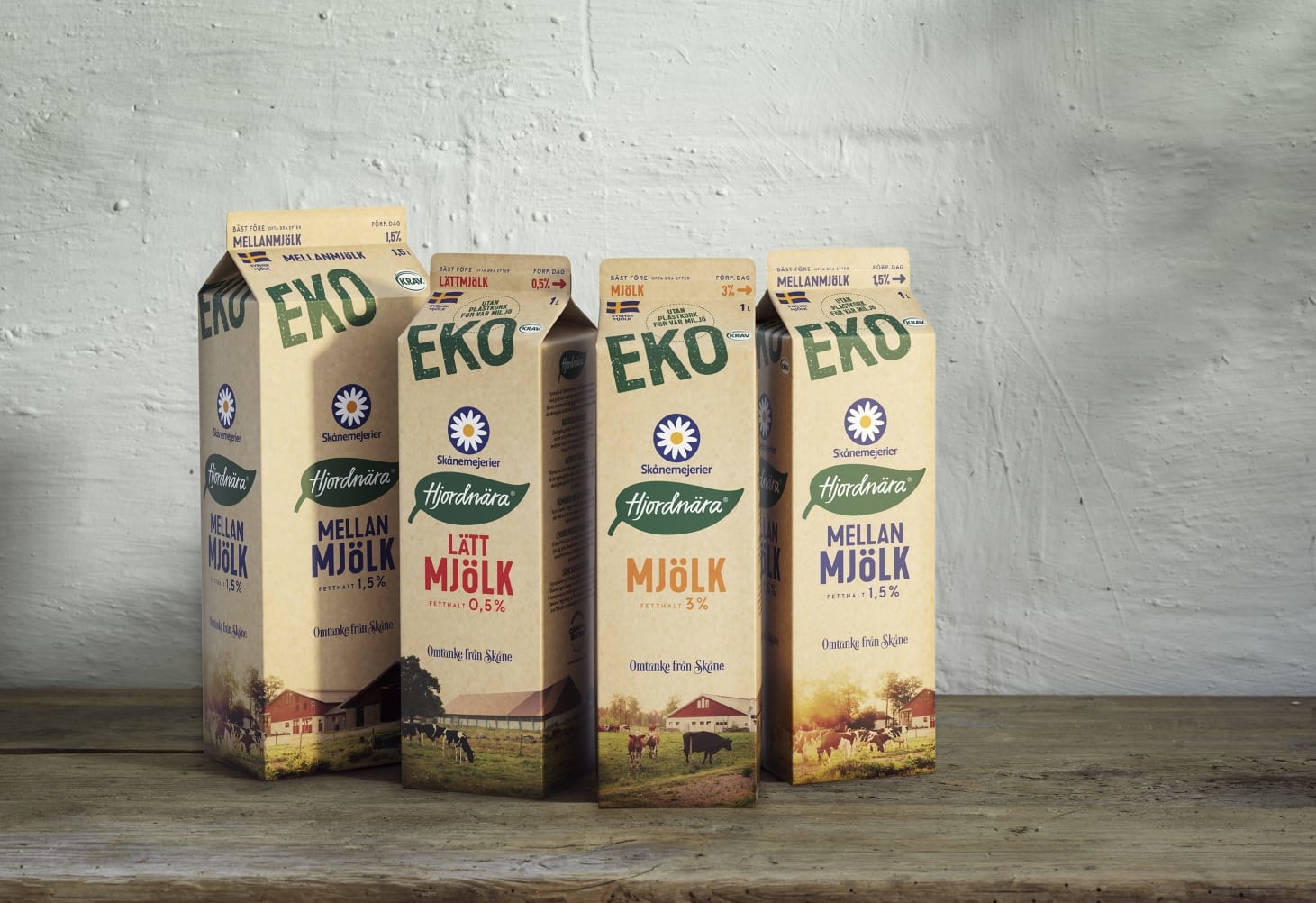
Swedish consumers say no to plastic caps
In Spring 2020, Skånemejerier decided to remove the caps on all Hjordnära organic milk. An easy opening feature replaced the plastic closure on the 1 liter Pure-Pak® cartons. Sweden’s second-largest dairy then let the sales figures and consumer reactions determine the future of plastic caps.
Consumers contacted the dairy via social media and its customer service department, with a clear majority of 79% preference for packaging without the plastic closure.
A result that demonstrates consumers prioritize sustainability over convenience is exactly what Skånemejerier was hoping for. Removing the plastic cap reduces the climate impact of packaging, and it also makes it easier for consumers to recycle. The new carton perfectly fits Skånemejerier’s vision to be Sweden’s most sustainable dairy and to minimize the amount of material in its packaging. The dairy now plans to gradually launch more products in Pure-Pak® cartons with no plastic cap.
Since its launch, Elopak’s Natural Brown Board has served as a platform for further sustainability-focused innovations, including the Pure-Pak® Imagine carton launched in 2020. This carton is a modern version of the company’s original Pure-Pak® carton, containing 46% less plastic and designed with a new easy open feature. It has no plastic screw cap, is 100% forest-based and carbon neutral, making it Elopak’s most environmentally friendly carton to date.
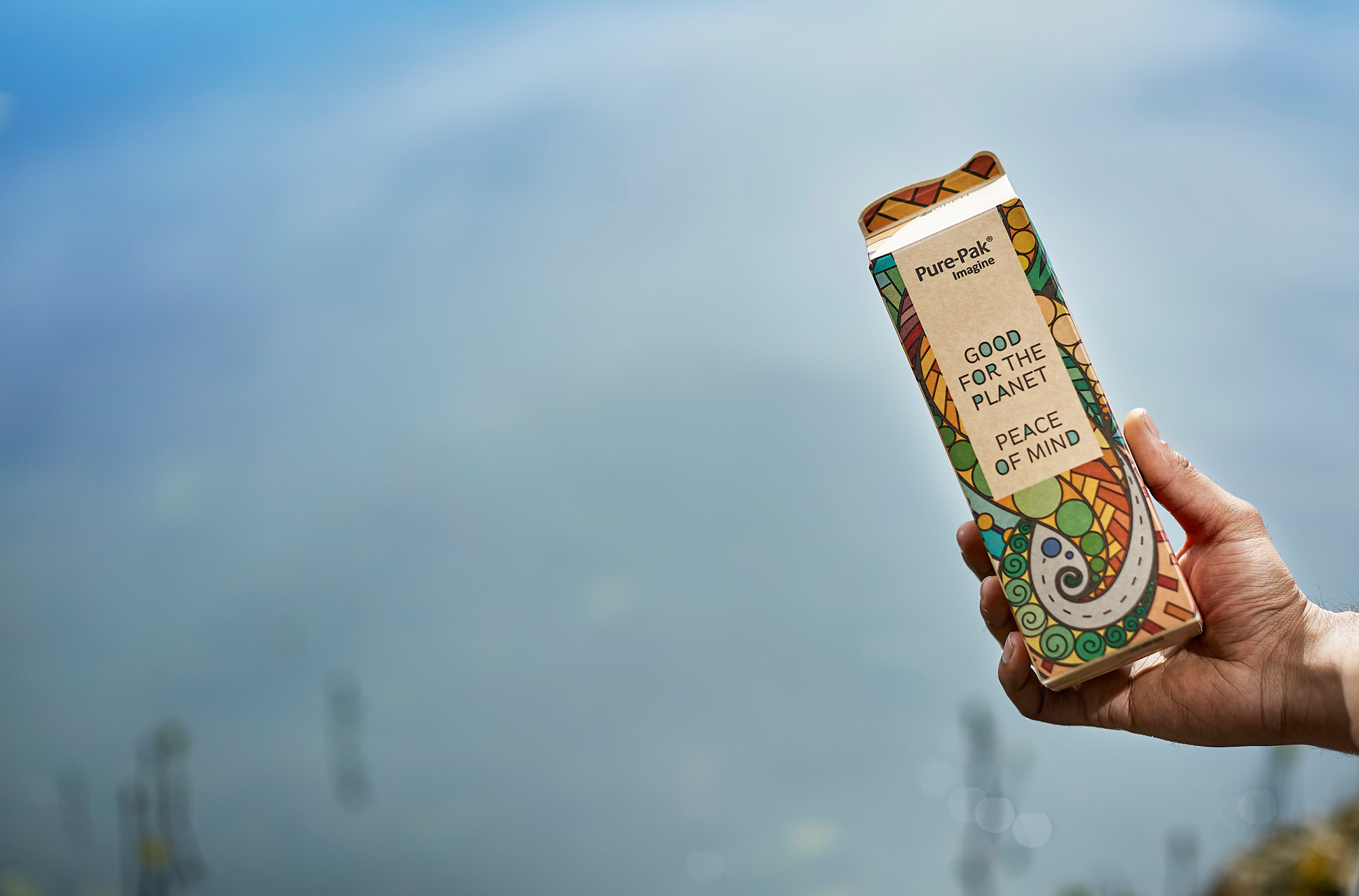
Case
Pure-Pak® Imagine – our most sustainable carton ever
In 2020 we launched our most environmentally friendly carton ever, the Pure-Pak® Imagine. A modern version of the original and iconic fresh Pure-Pak® carton with a new easy-open feature eliminating the need for a plastic screw cap.
This latest carton is 100% forest-based, made with Natural Brown Board, and is fully renewable and carbon neutral. The Pure-Pak® Imagine carton’s unique top fin helps guide consumers to open the carton to form a carafe for easy pouring. The new top fin shape adds a further important point of differentiation. Shape is the first recognition point for consumers, so this is especially important in markets less familiar with the easy opening feature.
In combination with the modern functionality of the easy-pour and easy-fold features, the carton sets a new benchmark in reducing plastics. The Pure-Pak® Imagine carton is first available for the fresh dairy category, creating the perfect low carbon, circular economy approach.
Read more
Going further, we will continue to reduce emissions from packaging, while working with stakeholders to ensure that recycling rates for beverage cartons continue to increase.
Elopak joins HolyGrail 2.0
In 2020, AIM, the European Brands Association, launched HolyGrail 2.0 – a cross-value chain initiative to improve packaging recycling and drive circular economy goals using pioneering digital watermarks. Elopak is one of over 85 companies from across the packaging value chain to join the initiative inline with our commitment to advancing sustainable solutions through collaboration.
Read more
Joint industry initiative to boost fiber-based packaging recycling
In 2020, the joint industry initiative 4Evergreen had their launch event, committing to 90% recycling of fiber-based packaging by 2030. As a cross-industry alliance, 4evergreen fosters synergies among companies promoting low-carbon and circular fibre-based packaging. By bringing together the entire value chain, 4evergreen enables cooperation with a comprehensive outlook on fibre-based packaging’s life cycle.
4Evergreen website
